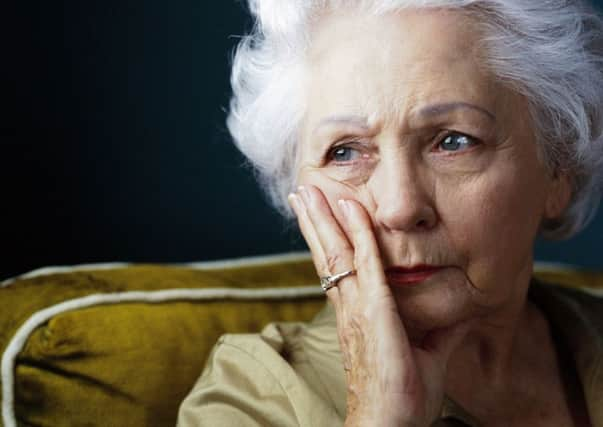New research reveals extent of loneliness - and shows just how much money interventions can save


Three quarters of people in Yorkshire and the Humber (76 per cent) say they have suffered with loneliness, research by the Campaign to End Loneliness, partners in The Yorkshire Post’s Loneliness: The Hidden Epidemic campaign, showed.
The new research examined the reasons why people felt lonely and found that seven out of ten people in Yorkshire said they believed that rising levels of loneliness among older people are contributed by families moving away.
Advertisement
Hide AdAdvertisement
Hide AdJust over of a quarter of people in Yorkshire, 26.2 per cent, said they believed loneliness was an inevitable part of getting older and 77 per cent said they think that people today do not care about older people feeling lonely.
Nationally, three quarters of over-65s say they would find it hard to admit to feeling lonely because they do not want to be a burden.
The major survey was released as the Campaign launched a new drive to inspire people to take action to tackle loneliness in older age.
Executive Director of the Campaign to End Loneliness, Laura Alcock-Ferguson, said: “There is much to do to overcome loneliness. The huge stigma surrounding it is clear, which is slowing down efforts to combat it. This is isolating millions of older people - and with our ageing population, the epidemic of loneliness is growing fast.
Advertisement
Hide AdAdvertisement
Hide Ad“The fact that over three-quarters of older people will not admit to feeling lonely is deeply worrying. The health impacts of loneliness are devastating; it is worse for you than obesity and as bad for you as smoking 15 cigarettes a day. Most worrying, however, is the popular view that loneliness in older age is more likely than ever - that loneliness is inevitable.
“But, with two thirds of people wanting to address the loneliness epidemic - and with compelling evidence that it pays to tackle loneliness - we know that we can challenge this. Loneliness is not inevitable.”
The Yorkshire Post launched its Loneliness campaign in February 2014 after revealing the heartbreaking scale of social isolation in the region, which takes it toll on 91,300 older people.
Back then, nine of the region’s health and wellbeing boards failed to give significant mention of loneliness and social isolation in their overarching strategies, a crucial document that sets out priorities for health and social care for the coming years.
Advertisement
Hide AdAdvertisement
Hide AdSeven of these have since pledged action, but we want a firm commitment from all local authorities to tackle loneliness as a healthcare priority.
Part of the campaign has also encouraged our readers to volunteer for support services helping those at risk of loneliness.
The need for loneliness interventions has been underlined by new research, conducted by the London School of Economics (LSE) on behalf of the Campaign, which demonstrated that up to £2 to £3 of health costs can be saved for every £1 spent on an effective intervention.
LSE looked at the societal and health costs of loneliness, such as expenditure on GPs visits, A&E, prescriptions and other health-related costs, and placed the cost at £6,000 per person over ten years.
Preliminary findings show that for every £1 invested you can expect a £3 return in health costs. If we spend £1 tackling the problem now, it will save £3 in five years.